Ivan Throne already covered the main philosophical and practical aspects of training and preparing for conflict in an excellent piece recently.
This article will focus on one thing only, the brutal reality of when violence actually happens in fact, not just on TV or in your mind. Perhaps not so coincidentally, the recent attack in London exemplifies exactly what this article is about, even though it was planned for before the attacks and has not been meaningfully edited since.
A short introduction to my history is probably required so you have an idea that I’m not just regurgitating other people’s experiences. I have done martial arts of one type or another since I was 4 years old. I have a couple of black belts and taught both Karate and later another system that until recently was used almost exclusively by Russian Special Forces operatives, so in terms of training I have well over three decades of official dedication. But training is not really always a good gauge of one’s ability to do, survive or overcome violence.
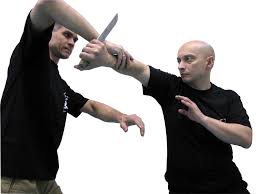 It certainly improves your chances but I have seen men who in training outmatch me due to their almost superhuman talent, younger age and physical fitness, make errors in brawls that resulted in them getting a black eye or broken nose for a lack of something that is not easy to define but could be considered a fiery but stable mix of bloody-mindedness, viciousness, killer-instinct, observation, and an indomitable spirit. And it was lucky for them that all they got for their ‘good-boy’ behaviour of disarming and thinking the opponent is defeated before he is actually unconscious, dead or otherwise incapacitated, was a black eye and not stabbed in the face. I would never have made their mistakes, and it is this kind of “difference that makes the difference” I want to try to explain.
It certainly improves your chances but I have seen men who in training outmatch me due to their almost superhuman talent, younger age and physical fitness, make errors in brawls that resulted in them getting a black eye or broken nose for a lack of something that is not easy to define but could be considered a fiery but stable mix of bloody-mindedness, viciousness, killer-instinct, observation, and an indomitable spirit. And it was lucky for them that all they got for their ‘good-boy’ behaviour of disarming and thinking the opponent is defeated before he is actually unconscious, dead or otherwise incapacitated, was a black eye and not stabbed in the face. I would never have made their mistakes, and it is this kind of “difference that makes the difference” I want to try to explain.
I have arrested and stopped criminals with force on multiple occasions though I have never worked in law enforcement. I have worked as an armed bodyguard and done so in various countries. I have had knives pulled on me four times and three of those times there was definite intent to stab me, yet managed never to get cut. A fifth time I stopped the five would-be attackers at gun-point before they drew their knives, which they had in their hand already, in their jacket pockets, ready to draw and stab as soon as close enough.
I have had armed people come to my home to shoot me dead and survived, and I have been in various brawls and fights though I generally try to avoid looking for them. That said, I will not back down either if it’s something I deem worthwhile. And what I deem worthwhile may differ from your view on it. I have prevented actual shootouts by catching the shooter early, disarmed men, and been in situations where outnumbered by a crowd of people I still managed to walk away, though in those instances divine intervention, and outrageous luck possibly had at least as much influence on the situation as mindset did.
Now that you know I’m not exclusively a keyboard warrior, let’s get to the relevant points.
Your most important defence and weapon is your brain, but it is useless (in combat) without heart.
You mind, honed by your training, your mindset, your experience, is your primary point of defence. Your number one concern should always be situational awareness. But this (and it cannot be stressed enough) needs to be balanced.
I have known what I politely refer to as idiots (aka bullet-catchers) be so concerned with looking like a bodyguard/professional/expert that they suffer from Steven Seagal Syndrome (SSS aka Stupid Security Shit). They are so busy being “The Bodyguard” and obsess about the stupidest little details that in the first place they are literally a beacon attracting attention like a bullet-magnet (it has its uses if you’re hiring these morons, but don’t be one of them) and in the second place, I have yet to meet one of these guys who couldn’t be taken out by a fifteen-year-old armed with a small knife that I have given 30 minutes of instruction to and has the right mindset.
Situational awareness is without a doubt issue n.1, but you can’t always be “on” consciously, so it has to become an unconscious skill. An unconscious skill does not give itself away as a beacon of light. I can generally spot undercover LE people, soldiers out of uniform and martial artists without knowing them at all. I myself have a bit of a “look” apparently that I am told is literally “terrifying” but that is a term used mostly by people who know my background and then put two and two together. Observant people may see I am trained, and they will be cautious, but few can spot a deeper sense of ability, and those who can tend to be at that level themselves. The point here is even if you look a certain way that is not naturally easy to pass off as Mr. Normal, don’t go making it worse with weird tats, a “hard look” and all the other peacocking supposed “warriors” indulge in. Those guys aren’t field tested. And the ring is not the field.
If you have been in enough situations or at least made yourself be aware of your surroundings, as a general rule for some years, you may have decent situational awareness. Generally this entails a few things:
- Entry/exit points
- Weapons (after a certain point literally almost anything is a weapon, so this for me is honestly completely unconscious now)
- People you may need to protect, look after or defend (your kids, wife, friends, etc) – This is a hard one, but you should know with crystal clarity the hierarchy here. You may NOT be able to save your kid AND your wife. Pick one. Know which one comes first. (If your wife is a Woman of the West and you picked her over her child she should stab you in the jugular at the soonest opportunity when you are asleep).
- Potential hold-out areas
- Potential threats
I list potential threats as last because in general EVERYTHING and EVERYONE is a potential threat. That three-year-old kid with the glazed look? He may not just be a tired toddler. Maybe his mother wired him up with C4 to take out the whole coffee shop you are in.
You may be getting the sense that this level of situational awareness is borderline psychotic paranoia. And you would both be right and wrong. If it is CONSCIOUS, then yes, you’re not effective, you’re always wired and you’re a beacon of shining light to drill first for any half-competent bad guys. You will also probably need to be this guy, for a few years in order to become unconsciously situationally aware. When it’s become part of your nature, then you’re starting to get somewhere.
Situational awareness without a real fighting spirit however at best will get you out of a bad situation alive, which is no small achievement, but is probably not enough to get you out of a really bad situation. In summary, if all you do is get MENTAL situational awareness, you might escape with your life and that’s the main aim, so that’s good, but sometimes escape is not enough (if you have to leave your loved ones behind) or not an option (situational).
In such cases, you need what I call heart. In over 40 years of life that has had some violence in it, from the chosen and disciplined to the random and unexpected, it is my considered opinion that to a great extent, this quality is possibly mostly inborn. You can refine it, shape it, sharpen it, for sure, regardless of your baseline level, but the most sanguine (optimistic in the face of extreme danger and even certain death) seem to have been genetically wired that way from birth and THEN have had years of training and situations piled on top of it that added to their natural talent.
Heart is NOT bravado, nor the self-delusional idea that you’re more capable than you are (which gets you killed pretty quick in real life), it tends to in fact be felt internally as a sense that you are NOT as capable as you wish, but you make a conscious decision to do your level best to take the other bastard out anyway.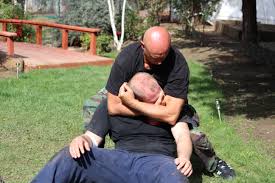
It is not always a fearless situation, especially before you begin to act (generally though when your physical action actually begins, fear is not an element of it as such). During the action, your brain can go into a kind of partially out-of-body experience. Myamoto Mushashi describes this the best that I have ever seen in his Book of the Void, which is about one page long (see Go-Rin-No-Sho. The version translated by Victor Harris is the best one).
If you have situational awareness and have had a few experiences that have proven to you (often to your own surprise) that you also have heart, THEN, you have the essential basic parameters to actually be real-world ready for violence that might come your way. Let us now look at this very unpleasant reality as it is, and not as many people, including many supposed professionals, imagine.
Violence in the real world
Let us assume you have both situational awareness as well as Heart, as described above. Let’s also assume that you have a couple of decades of martial arts from a reality-based school of thought and maybe even a few real world experiences with violence that have essentially made you not be a stranger to it all. That, for practical purposes, puts you in the top 1% of the average male human population of the planet with respect to the concept of being ready for real life violence. The assumption here is that you’re going to be the VICTIM of violence.
Even if you’re RoboCop, or Mr. Commando, you sometimes have dinner with your wife and kids, let’s say. Or take part in some other similarly mundane and pedestrian activity. If in doing so you live in a place or have opportunity to be armed, then it is an absolute disgrace if you are not and if you do not train relatively obsessively with that firearm in realistic scenarios. This type of handgun training by the way is hard to come by, not always safe (because humans are irritatingly stupid) and best done gradually and, as with any martial training, regularly and over a long period of time (constantly. Training never ends, it just adapts to your changing circumstances, age, etc).
That said, we will assume for this article that you would be generally not armed with a handgun, which applies to almost all of Europe with some specific and few exceptions, and generally most people on the planet too.
Even given your training, mindset and heart, being unarmed in a suddenly violent situation still comes as a shock. If you’re lucky and really DO have all of these things you MAY get a few seconds of warning before anyone else. If you’re really lucky you’re not target n.1 when the attack starts.
In the BEST of cases, if all of the above are true, you realise something is about to happen, you are not the main point of attention and you can correctly gauge what’s about to happen. In such a case your order of action is:
1. Secure the safety of loved ones first as best you can. Make them escape, get them out of there, hide them, as the case may be. Physically leaving the area is always the best option if at all possible and should be your first priority for them.
2. If possible (or not genetically wired to fight instead of flight) always take this option if it’s available, especially if you have loved ones to look after.
3. Counter-attack. This is the item we will be focusing on for the rest of this article. The other two are generally self-explanatory, but be aware that either of those situations can instantly revert to this one too. You may have to counter-attack to give your family the chance to get away. You may be stopped in your escape attempt. You need to be able to instantly switch from one to the other two of these options, as seamlessly and instantly as your reflexes can do it. That is generally almost impossible to do for men who have not had actual (and somewhat extensive) combat experience. Women on the other hand, tend to be more genetically wired to do this instinctively, probably because biologically of course they are at a huge disadvantage in physical confrontations.
Kill The Bastards
So you’re having dinner, or whatever, and all of a sudden the place you’re in is attacked by a crazy Islamist bent on mass-murder. You’re either alone, or not, but, for whatever reason, avoidance, escape and not fighting are no longer options. How do you go about it? There are several points to be aware of that even if you have not physically experienced (for which there is really no substitute) you need to be aware of:
- Fine motor skills go out of the window for over 95% of the population. And that’s being conservative. I am lucky in this regard as in my specific case, under extreme conditions of life and death I do actually enter that “Void” that is described in Go-Rin-No-Sho. There is no fear there, only a kind of ethereal beauty and a kind of perfection. My shooting, movement, fighting, becomes totally fluid and natural and somehow flawless. I have fired shots, rolled with attacks and grabs of opponents and attacked and neutralised men in this state with a precision I could not muster consciously. I believe this is a combination of factors due to my being a borderline Aspergers and having spent literally decades in training of many things related to shooting and fighting, but unless you are lucky enough to be part of this tiny proportion of humanity, the overwhelming likelihood is that your fine motor skills will not be at their best. That doesn’t mean you shouldn’t aim small to hit small, so for example, if all you have as a weapon is an empty beer bottle, do try and ram it neck first into the eyeball of your nearest suicidal jihadi, by all means, but don’t be too disappointed if you don’t hit his eyeball exactly. As long as it breaks on his face it’s kind of good. Carry on going for his eyes with the shards that may be cutting your hand too. The important point is that you however…
- Be utterly ruthless. In a life and death situation, your mindset if you cannot get away should be in “Kill them all to get away” mode. Your primary purpose is survival. And when someone is trying to kill you and your loved ones, the correct response is to kill them right back, do it first and do it as fast and efficiently as possible. Legalities and court cases and so on are utterly irrelevant in such situations. As the saying goes, better to be tried by twelve than carried by six. In practice this means several things:
- Be mentally immune to brutality, not just of your doing, but of the enemy’s doing to you. The sight of blood often freaks people into a frozen shock-panic. Don’t be that guy. Go to an abattoir and take a plunge in gore if you need to. A human head that’s just been shot with a hollow point or a fast moving carbine-round can be a revolting mess to look at. Especially if some of it is sprayed on your face and it happened to be someone you knew and were talking to a second ago. React, fight, jump out of your seat, and embed the butter knife in the eyeball of the jihadi. Keep stabbing until you have HIS gun.
- Use any gore/blood to your advantage. If you DO get cut, don’t panic, and instead use your own blood as a psychological weapon. Don’t YOU look at it, but spray your wounded arm at your attacker and shout at him “Look. Look, you cut me, look, I’m bleeding!” Sounds counter-intuitive? It works. If you have the cold-blooded presence of mind to verbally fuck with his head then do so. Shout “Look, look, you cut me! You’re bleeding! Your arm is bleeding!” while you show him YOUR cut arm. It’s a pattern interrupt. If any of the words sink in, he may well stop and start looking at his own arm. Scoop up a handful of your dead friend’s brain and throw it at the bastard who shot him. In that fraction of a second he is distracted, fly at him and poke his eyes out with your thumbs while you latch onto his face with your teeth. He may have an AK47 on him but if you’re doing that and managed to get to him before he ventilated you, that weapon will only be a hindrance to him while you’re literally trying to blind him and bite out his carotid artery at the same time.

- Keep moving unless you are in a fortified position or waiting in hiding to attack. In general a moving target is far more likely to survive than a static one. The survivability here is multiples higher so unless you have a good reason, keep moving. Fear is NOT a reason at all.
- Do not hesitate. Especially to do violence of a massive and deadly kind. This of course assumes the situation warrants it. We are talking about a jihadi attack on civilians or something similar, not an old lady stepping on your foot at the bus stop. Even if you’re not doing violence, the aftermath of violent events shows that without any shadow of a doubt, your survivability massively increases if you move immediately and without hesitation. In a situation where escape is not an option, massive, intense, sustained (at least until you can escape or the bad guy is dead) attack invariably gives you better survivability than almost any other course of action.
- NEVER give up. This needs to be stressed ad nauseam. In a situation where for whatever reason, but especially if dealing with jihadis, you have had to go on the offensive, surrender after that will never work out well for you. You will most likely be made an example of and tortured to death. If you’re lucky. If less lucky they will torture your loved ones to death in front of you first. And remember that even if you are doomed, it is best to die fighting than on your knees. Even that Italian hostage that was killed in 2004, never managed to harm any of his attackers, but he tried, and his memory as a man of courage lives on and gives his surviving family some solace. “My dad was a man and died like a man,” is a better thing for a surviving child to remember than “My dad died like a sheep to slaughter.”
A final note on situational awareness
I do not know the details, but it is not too surprising to me that one of the people killed by the recent London jihadi Attack on Westminster was a policeman. Although originally reported as armed, it appears now that he was in fact unarmed. I don’t know the details and I do not want to cast aspersions on a situation I am not specifically clear on the details of, nor do I wish to cast aspersions on a man who will no doubt be missed by his loved ones. That said, I make it a point to notice the training and ability of both unarmed and armed police and military, and how they act in the countries I have lived in, and the British armed police are amongst the worst. Their training is generally woefully inadequate, and the unarmed are even more at the mercy of attackers. I know because I have trained a few in martial arts, both armed and unarmed, and they are, for my purposes, mostly situationally blind.
I used to walk past several of them at the old American Embassy in London, and I made a mental note that if ever a sudden zombie apocalypse or similar random war-like, riot-event happened, the safest thing for me to do would be to go and collect two sub-machine guns and two handguns from the nearest pair of armed police. Honestly, I could literally incapacitate and disarm the usual pair of armed police in London without breaking a sweat.
In Italy and Kazakhstan the situation is a little more complex because they generally travel in groups of three, not two, and usually two are army and one is police, so their training is also different.
In South Africa, the police are generally sloppy but even when only in pairs they tend to have good positioning, and don’t stick too close to each other, so taking two of them out is not so simple unless you’re already armed.
Police in the USA tend to be extremely paranoid and may shoot you even when you go and ask them for directions if you move too quickly. I know because I went up to a bunch of cops there to ask for directions and from about a dozen metres away I noted them noticing me and I had a little bag of food in one hand and I made a point to spread my arms out a bit, open the left hand and hold the little bag away from my body, as I smiled and called to them from several metres away telling them I was lost. When they realised I wasn’t a threat but just a lost tourist they were shocked a civilian would think of them as helpful strangers. So overall the US police situational awareness is “good” but they might shoot you for blinking excessively or something (the problem of the “super-Expert” mentioned right at the start of this article).
The point of this little summary of armed police in several countries is that even so-called “professionals” are for the most part very bad at generic situational awareness. I am not writing hyperbole when I say that it is the absolute number one thing to train. I have personally survived at least four attempts on my life thanks to it and certainly avoided at least one and possibly two actual shoot-outs between armed factions because of spotting the individuals about to rush us and repositioning our team in seconds.
CONCLUSION
Violence in real life is vicious, harsh and shocking. Even if trained you will not be in control, the overall sense will be one of terror and panic. Keeping your wits about you will be the most important and difficult part of it all.
Notice that situational awareness remains THE pivotal element in all of this. Even if you are not a ninja-master of deadly toothpick throwing and can’t kill a man in five different ways with a toothbrush, if you train nothing else, train yourself to always be situationally aware. It is the single most important survival skill you can have and you don’t need years in the gym getting your head kicked for you to develop it.

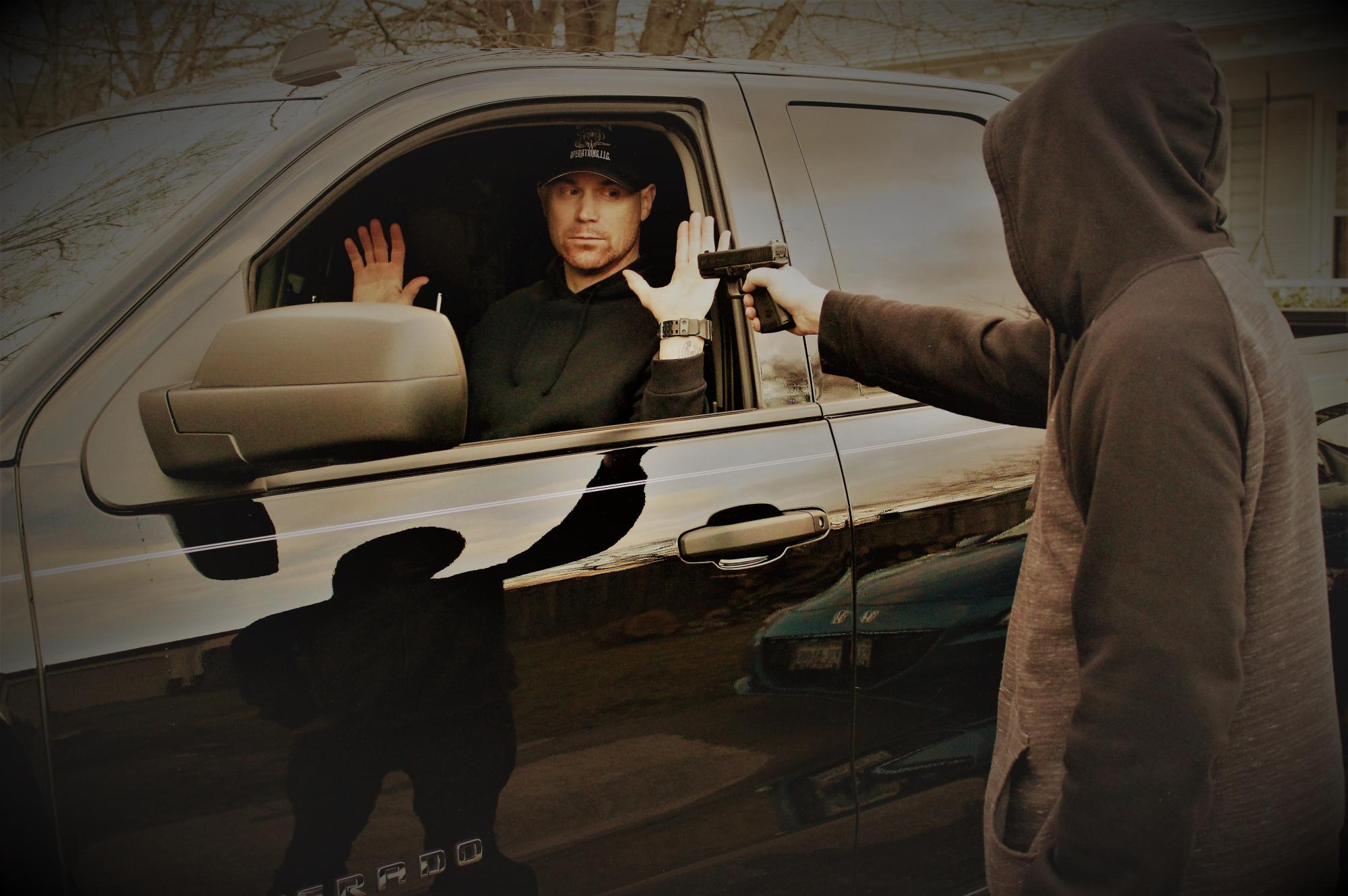


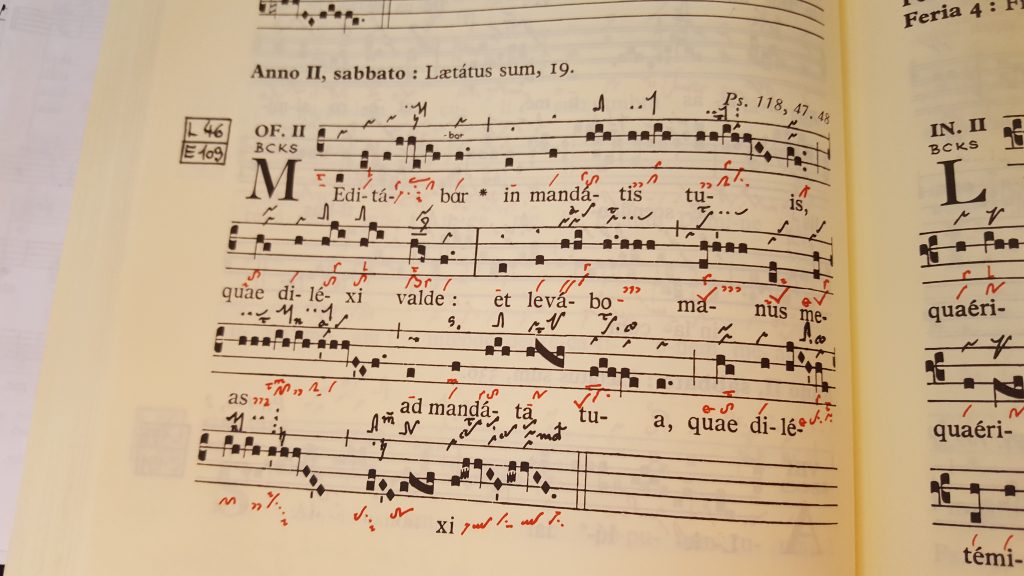

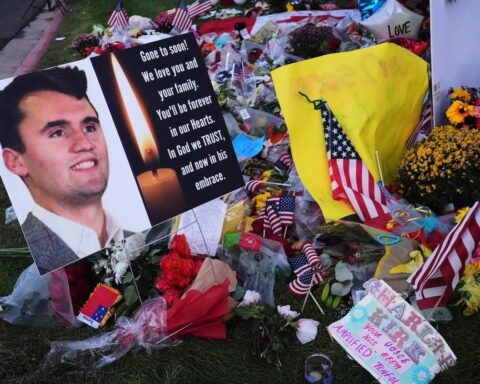



Excellent article. Helped me to recognize and think about where I am or may be lacking in my ability to protect myself and those around me.
The only area Kurgan describes where I consider myself above the average run of men would be situational awareness. In sketchy places where other people have bad thing happen I’ve avoided trouble. Or been lucky.
Having a general idea of the most likely threat is important. If you’re in a high crime area, a hard look can help (to a point). In a jihadi ambush, I assume the opposite is true.
Grabbing someone and biting their face is my favorite move!
Outstanding article. Having had my fair share of combat training and real-life singular and team hand-to-hand encounters as a cop, I have come to realize that personal self-defense can be summed up in what I call the critical ‘A’s: namely, always Anticipate (means you anticipate that a conflict will happen, and so you prepare for it mentally and physically), always Armed (meaning always have a weapon of some sort with you), always Aware (awareness at a subconscious level that sees all), always Avoid (the best way to survive is to avoid any conflict), always Aggressive (means that if you find yourself in a conflict, then use maximum ‘0to kill-that-bastard in the blink of an eye’ aggression at all times), and finally, always Annihilate (meaning destroy the enemy utterly).
I can also relate to entering the so-called Void during fights. As a cop, when I would get into a hand-to-hand fight (often alone, given our circumstances…and in the country where I worked, shooting someone is an extreme last resort, even for police, so we went hands-on a lot), there was no fear, just this weird sort of detachment where I was seeing things unfold as if on a slow-motion camera. In fact, my after-action reports would be so detailed precisely because I was somehow both consciously aware of what I was doing, and yet I was reacting unconsciously to the threats coming at me. It is a unique feeling.
Anyway, again, a solid article. And if you wish, feel free to check out my article on a similar topic at Return of Kings:
https://www.returnofkings.com/115766/how-to-maim-an-attacker-when-your-life-is-on-the-line
Best wishes!
Damian Michael
Question for you security and self defense experts: Is it a mistake to use tactical jackets and molle backpacks ect out in public? I like using tacticool stuff, which is very useful for EDC, hiking, hunting, motorcycling, and I like putting a flag patch on my stuff. I carry most of the time, and have about 15 years of training in mixed martial arts and weapons. I’m also an emergency hazmat response technician, so I’m somewhat used to situational awareness and dangerous situations. But sometimes I wonder if they way I look might draw the wrong attention these days. Your thoughts?
In my opinion yes. You’re advertising. Why?
Do you want people to know how “cool” and tactical you are?
I carried a gun AND a knife for years and you would never know I had either on me.
Why give away the element of surprise? Especially when you’re going to be the victim of a violent event and not the initiator of it?
If I don’t have “heart” is there any way to develop it? Or is it futile and if I end up with a jihadist situation I am doomed?
As I said you can train it and improve it, regardless of your baseline. Get into a martial arts class based on reality and start training hard. Read Ivan’s article too on the genetics of mentally preparing yourself.
*generics – but maybe it was a fortuitous misspelling. Train hard enough and maybe you can change your genetics.
Kurgan,
Great article.
How would you recommend improving situational awareness? Could you write some thoughts on that in another article?
Force yourself to observe your surroundings consciously whilst assuming everything that you see could be a threat and positioning yourself accordingly.
It’s not rocket science.
I called “the Void” “Bullet Time” because the first time it happened to me was not long after the Matrix came out.
Happened charging a dude playing paintball in the woods. Then I missed at point-blank range. Freaked me right out.
If it ever happens again, I hope my brain is more prepared for it.
4.5
Gee, where have I seen writing like this before… Oh yea…. Bullshido.net